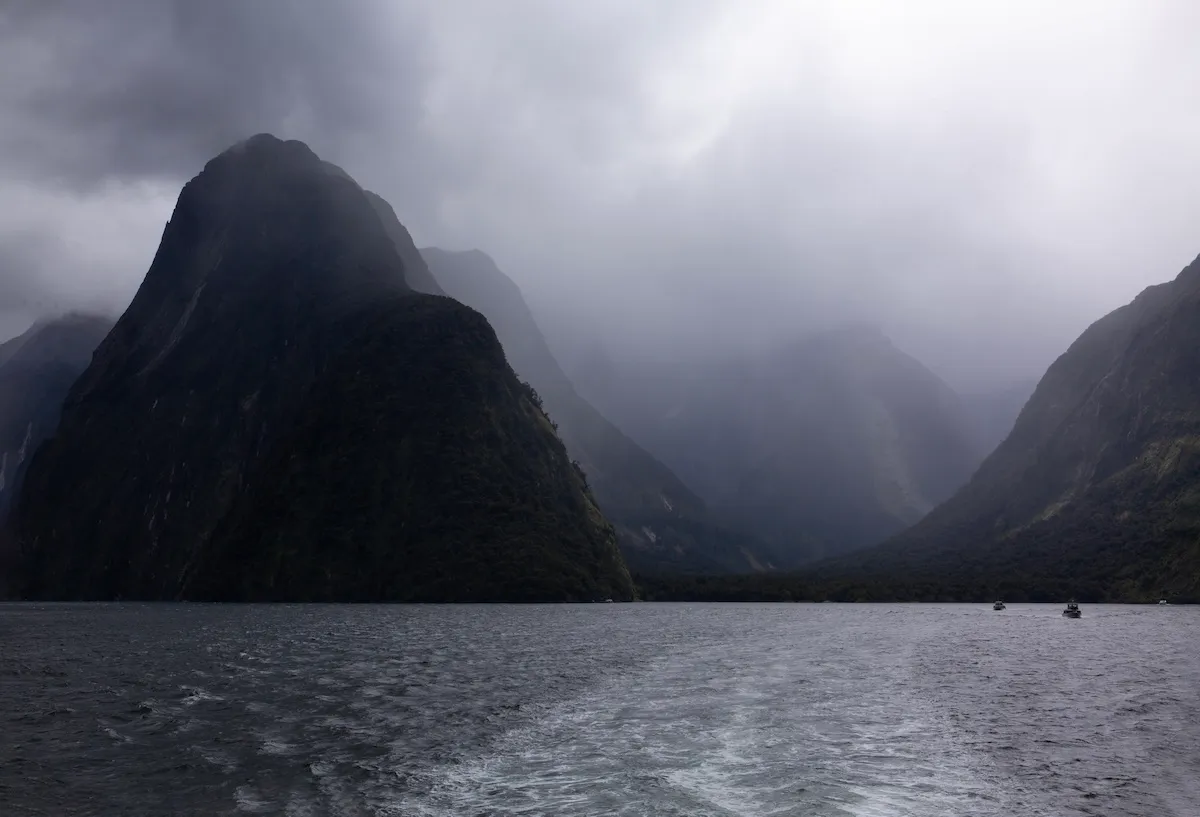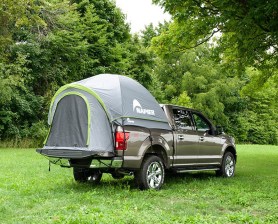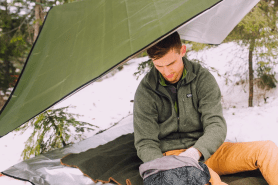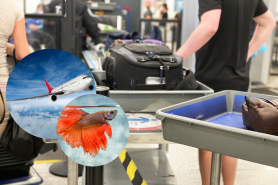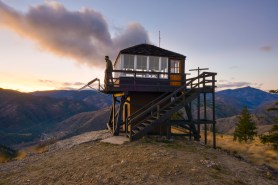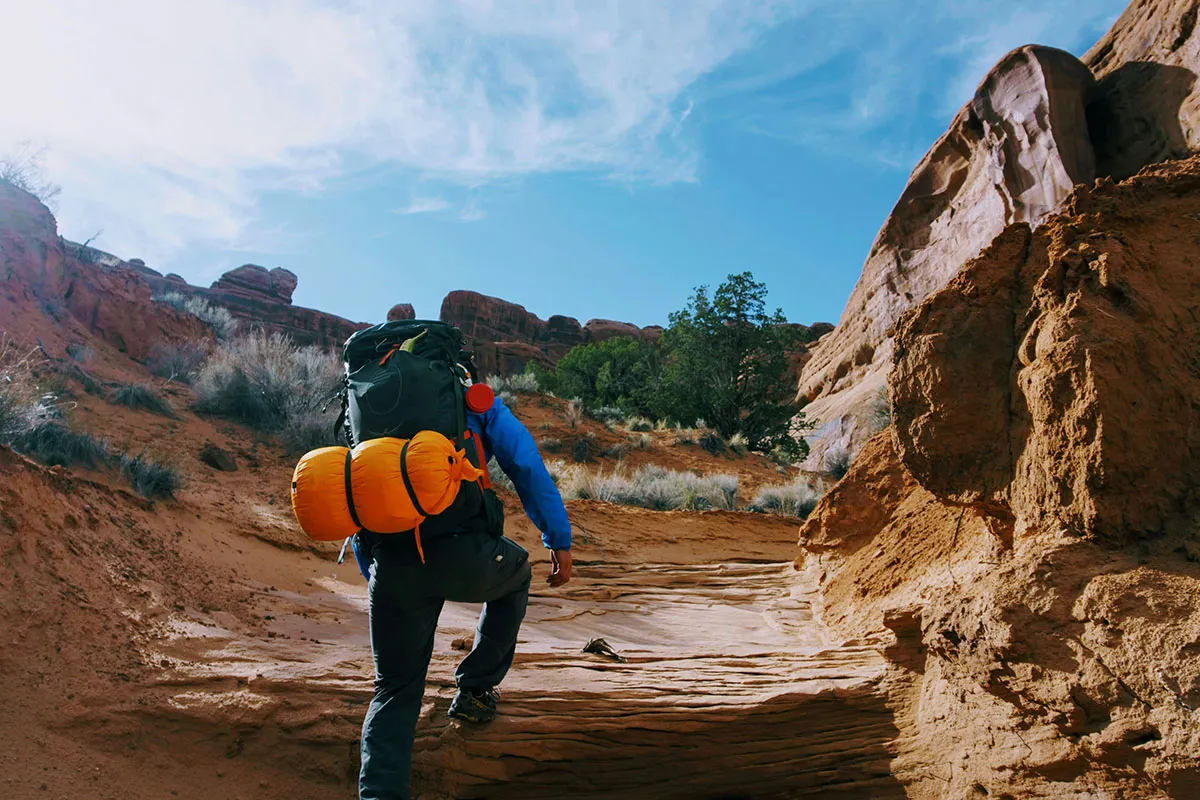

Backpackers always consider the weight of their pack before heading out on an excursion. They might even spend many restless nights wondering how to make the load lighter, since no one wants to be stuck carrying a heavy pack for miles and miles.
Videos by Outdoors
In this article, we ask if there is such a thing as ultralight backpacking, or is it just a marketing term used to help sell outdoor products? Is packing “ultralight” a good idea when you are heading out on a serious multi-day adventure? Let’s dive in.
This post contains affiliate links. Outdoors.com may earn a commission when you make a purchase through these links. Thank you for your support.
What’s the Difference Between Lightweight and Ultralight Backpacking?
Lightweight and ultralight backpacking are both approaches to outdoor adventuring that focus on reducing the weight of gear in the pack. They can refer to the gear itself or what goes inside your backpack.
For most backpackers, the ideal base pack weight must be a balance between the essential gear and some comfort items that will make your trip more enjoyable. Consumable items such as food, water, and fuel are generally excluded from the base weight, since this can vary and change day by day.
You might try to choose gear designed for backpacking to try to reduce the pack weight. Choosing lightweight backpacking tents, ultralight tents, sleeping bags, or backpacks can help to lighten the load significantly.
Ultralight backpacking takes this notion a bit further. Ultralight gear can be more expensive to buy and, as a concept, it encourages backpackers to sacrifice a few comfort features on the mission to reduce weight. In order to get the weight down, you may need to cut out some important items.
Weight Specifications
There is no official guideline on the weight specifications for lightweight or ultralight backpacking. In fact, some people think the expression “ultralight” is a catchy term used to sell products. As a general rule of thumb, we can define the categories like this:
- Regular weight: base weight starting at 30 pounds (13.6 kg)
- Lightweight: base weight less than 20 pounds (9 kg)
- Ultralight: base weight less than 10 pounds (4.5 kg)
How to Keep Your Pack Light
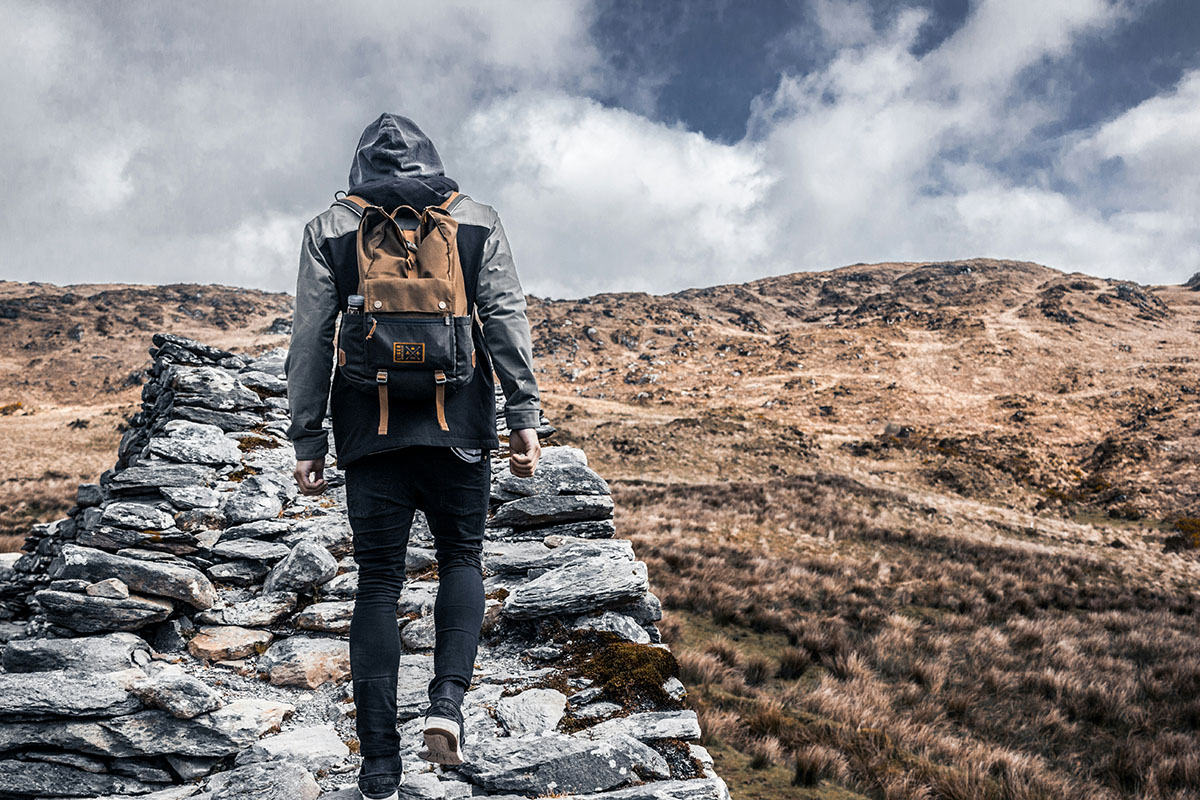
Once you’ve decided on your next backpacking trail, you need to start thinking about packing. There are a few ways you can adopt ultralight and lightweight packing principles.
Backpack
You will need to make a few adjustments to lower your pack’s weight into the lightweight backpacking or ultralight backpacking categories. The first thing to think about is the backpack itself.
Keep an eye out for backpacks made from materials like Dyneema, Cuben Fiber, or silnylon. These offer strength and support at a lower weight.
A minimalist design featuring fewer pockets and straps, a lightweight frame or frameless structure, and that holds a lower volume can make a backpack feel much lighter to carry.
Sleeping Bag
Choose a sleep system that is designed for backpacking. These types of bags are usually made from lighter weight materials for the shell and lining. Check the brand guidelines to see how much the sleeping bag weighs when packed.
Tent
Your shelter is one of the heaviest items you will need to carry, as it often contains metal tent poles. Look for an ultralight tent that will still provide shelter in the weather conditions you are likely to face.
Ultralight tents will prioritize materials and packability to ensure they are easy to carry for long periods of time. Some even use trekking poles instead of traditional tent poles.
Food and Water
Carry a lightweight water filtration or purification system, such as a portable filter or purification tablets, rather than carrying large amounts of water. Plan your route around water sources to minimize the amount of water you need to carry at any given time.
Use cookware made from materials like titanium that can have multiple uses, from drinking water to cooking on a stove. Ultralight backpacking stoves, such as alcohol stoves or compact canister stoves, can be much easier to carry than heavier alternatives.
Clothing
A committed ultralight system will include several multi-tasking items. An ultralight backpacker will choose clothes that can serve a few different purposes. Pick items that are suitable for layering as well as comfortable for sleeping in.
Technology
In today’s world, it’s natural to want to bring some technology with you to record some of the amazing sights you see. Your DSLR, drone, and tripod, along with the devices and power banks required to charge them, are not exactly conducive to a lighter pack.
However, if these things are important to you, simply accept that you will need to carry a few extra pounds along the way.
Winter Backpacking
If you are setting out into cold temperatures, you will need to pack a few extra items, which can make lightweight backpacking a little tricky. Winter camping gear can add bulk, and essentials such as crampons, warm clothes, and trekking poles are extra considerations for your load.
Light and ultralight packs are not going to provide you with the support and comfort that you will need to make a winter journey, and you will require more substantial gear to help carry the load.
Don’t Forget to Take a Luxury Item
A luxury item might seem unnecessary when you’re trying to carry less weight, but we think it makes the backpacking experience way more fun.
What makes a good luxury item? Playing cards, fairy lights to string up around your tent, a couple of books, extra socks, lightweight camping chairs, a hammock, and more.
Don’t become so obsessed with how much your bag weighs that you skip over items that can create good memories. Edit your packing list down to only the bare necessities, and then toss a little bit of fun back in there.
Stay on top of your list with our checklist of packing essentials.
The Best Lightweight and Ultralight Gear: Recommendations
- Best ultralight backpack: Hyperlite Mountain Gear South West 40
- Best lightweight backpack: Osprey Aether 65-Pack
- Best ultralight tent: Sea 2 Summit Alto Tr 1 Tent
- Best lightweight tent: Big Agnes Copper Spur HV UL2
- Best ultralight stove: Soto Windmaster Stove
Cost Considerations
It is no secret that ultralight backpacking gear can be more expensive.
Despite the higher upfront costs, many backpackers value the benefits of reduced weight on the trails and justify the higher price when the time comes to upgrade their gear.
There are a few reasons why the costs are higher. The testing, research, and modern technology that goes into production contribute to the final price, as does the design, materials, and manufacturing process.
Durability

Just because something is more expensive does not necessarily mean it will last longer. One of the downsides to investing in ultralight and lightweight gear is that it might not be as durable as some of the heavy-duty alternatives that are built to last for years.
Ultimately, it’s worth looking into the construction and materials in pieces of gear that are designed with weight savings in mind over durability.
You might also find that ultralight gear requires more delicate handling and maintenance to ensure longevity. Try to avoid overloading backpacks, always set up your tent on a smooth surface to prevent abrasions, and store gear properly when you’re not using it.
Final Thoughts
If you want to pack ultralight, it’s definitely worth thinking about investing in some fancy ultralight gear. There are some good quality products out there.
Our advice? Be selective about it. While having lighter gear is great on a backpacking trip, quality gear that lasts a long time is better value for money in the long run.
The most important thing to keep in mind is your own happiness and wellbeing while you’re exploring the wilderness. Take whatever you need and don’t sacrifice on too many comforts. Embrace the adventure and don’t worry too much about having the latest ultralight gear.

